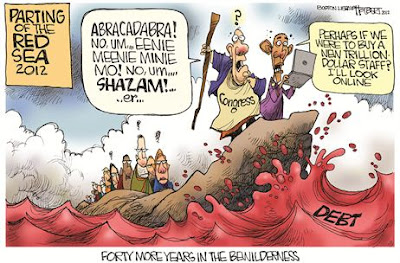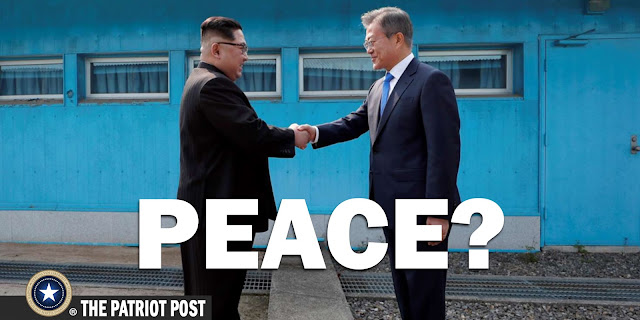Perry Tarnished, Romney Holding Firm and Religious Bias Overestimated
Despite Perry’s early uninformed high poll numbers, Romney remains strong, and Perry’s veneer appears to be fading as he came under attack on various issues in the debates. These included his executive order mandating female child HPV inoculations (& possibly scandalous donations by the benefitting drug company & his persuasive staffer who benefitted), his stance on higher education benefits for illegals, his approach to Social Security dismantling, and the amount of credit he should take for his jobs record.
When asked how much credit Perry deserves for Texas’ relatively strong jobs record, Romney replied that being dealt 4 aces doesn’t make you a good poker player. I.e., Perry already had a state w. no state income tax, w. Republican legislature, low corporate taxes, and right-to-work laws (not so union-burdened). And he pointed out that Perry’s 2 predecessors had higher job growth. Perry countered that his terms were in a time of national downturn. Yes, but not as dire as Massachusetts’ fiscal problems when Mitt took over. And when there was figurative “famine” in the rest of the country, of course jobs will preferably flee to “Egypt” where conditions are more favorable. Ron Paul (also of Texas) agreed that Perry didn’t deserve credit, and in fact he raised taxes. Romney's earlier analogy of Al Gore claiming credit for inventing the internet also seemed effective. We'll see if he comes out with more.
Regarding the Romney-Perry “shootout” over Social Security, and accusing each other of scaring Americans, Gingrich said he was not so concerned over their scaring Americans as Obama who does it every day. I do think the “Ponzi scheme” concern is somewhat a semantic argument, and argument over tactics. Although Romney raises a good point about Perry’s recent advocacy of dismantling social security to transfer it to the states. Praeger thinks Perry lied about what Romney wrote in his book – claiming he said the program was fraudulent, whereas he actually said the administration of Social Security was fraudulent (Congress using the funds for other things). I think most of the candidates have fairly similar ideas on the need and options for reforming and securing the program.
Then Perry said to Bachman over the HPV order, “If you think I can be bought for $5,000 [drug company campaign contribution], I’m offended.” Medved and others feel that may be a disastrous statement for him. It begs the question of, “well, just how much can you be bought for?” As well as keeping the issue of scandal alive (his staffer who convinced him to do it benefitted hundreds of thousands as lobbyist for the company).
On top of Romney’s widely-acknowledged strong performance at the 2 debates last week and this, he received an important endorsement by a former opponent. Governor Tim Pawlenty, who raised the “Obamneycare” objection at the first debate, then dropped out of the race, just joined Romney’s campaign staff. And he said on Fox News, “Romney’s the most capable, knowledgeable and electable candidate.” Polls continue to bear him out, especially against Obama.
A new poll also shows that the bias a specific Mormon (Romney) faces among voters is not as bad as a generic Mormon. “The 41% who know Romney's religion are 13 points more likely to vote for a Mormon than are those who do not know his religion, which demonstrates that the bias against a faceless Mormon doesn't stand up when an actual Mormon enters the picture. Being a Mormon is not the hindrance for Romney some analysts have supposed, and may be a plus. [Presumably those who don’t know his religion can’t act on their generic bias. And perhaps having a 2nd Mormon candidate in the race (Huntsman) makes him stand out even less, or gives more a sense of normalcy, although far fewer know Huntsman's religion, just as for Harry Reid.]
“Of those who said they would never consider voting for a Mormon, only half stuck by that position when asked if they would vote for a Mormon who is a well-qualified nominee of their party, another indicator that the anti-Mormon bias is not that deep.
“A hardcore group of about 10% will never vote for a Mormon, but for the rest of the nation, a candidate's membership in this increasingly visible religion is not a salient factor in the vote decision.” (http://www.marketwatch.com/story/lawrence-research-poll-mormon-presidential-candidates-face-bias-2011-09-06)
When asked how much credit Perry deserves for Texas’ relatively strong jobs record, Romney replied that being dealt 4 aces doesn’t make you a good poker player. I.e., Perry already had a state w. no state income tax, w. Republican legislature, low corporate taxes, and right-to-work laws (not so union-burdened). And he pointed out that Perry’s 2 predecessors had higher job growth. Perry countered that his terms were in a time of national downturn. Yes, but not as dire as Massachusetts’ fiscal problems when Mitt took over. And when there was figurative “famine” in the rest of the country, of course jobs will preferably flee to “Egypt” where conditions are more favorable. Ron Paul (also of Texas) agreed that Perry didn’t deserve credit, and in fact he raised taxes. Romney's earlier analogy of Al Gore claiming credit for inventing the internet also seemed effective. We'll see if he comes out with more.
Regarding the Romney-Perry “shootout” over Social Security, and accusing each other of scaring Americans, Gingrich said he was not so concerned over their scaring Americans as Obama who does it every day. I do think the “Ponzi scheme” concern is somewhat a semantic argument, and argument over tactics. Although Romney raises a good point about Perry’s recent advocacy of dismantling social security to transfer it to the states. Praeger thinks Perry lied about what Romney wrote in his book – claiming he said the program was fraudulent, whereas he actually said the administration of Social Security was fraudulent (Congress using the funds for other things). I think most of the candidates have fairly similar ideas on the need and options for reforming and securing the program.
Then Perry said to Bachman over the HPV order, “If you think I can be bought for $5,000 [drug company campaign contribution], I’m offended.” Medved and others feel that may be a disastrous statement for him. It begs the question of, “well, just how much can you be bought for?” As well as keeping the issue of scandal alive (his staffer who convinced him to do it benefitted hundreds of thousands as lobbyist for the company).
On top of Romney’s widely-acknowledged strong performance at the 2 debates last week and this, he received an important endorsement by a former opponent. Governor Tim Pawlenty, who raised the “Obamneycare” objection at the first debate, then dropped out of the race, just joined Romney’s campaign staff. And he said on Fox News, “Romney’s the most capable, knowledgeable and electable candidate.” Polls continue to bear him out, especially against Obama.
A new poll also shows that the bias a specific Mormon (Romney) faces among voters is not as bad as a generic Mormon. “The 41% who know Romney's religion are 13 points more likely to vote for a Mormon than are those who do not know his religion, which demonstrates that the bias against a faceless Mormon doesn't stand up when an actual Mormon enters the picture. Being a Mormon is not the hindrance for Romney some analysts have supposed, and may be a plus. [Presumably those who don’t know his religion can’t act on their generic bias. And perhaps having a 2nd Mormon candidate in the race (Huntsman) makes him stand out even less, or gives more a sense of normalcy, although far fewer know Huntsman's religion, just as for Harry Reid.]
“Of those who said they would never consider voting for a Mormon, only half stuck by that position when asked if they would vote for a Mormon who is a well-qualified nominee of their party, another indicator that the anti-Mormon bias is not that deep.
“A hardcore group of about 10% will never vote for a Mormon, but for the rest of the nation, a candidate's membership in this increasingly visible religion is not a salient factor in the vote decision.” (http://www.marketwatch.com/story/lawrence-research-poll-mormon-presidential-candidates-face-bias-2011-09-06)



Comments
Post a Comment